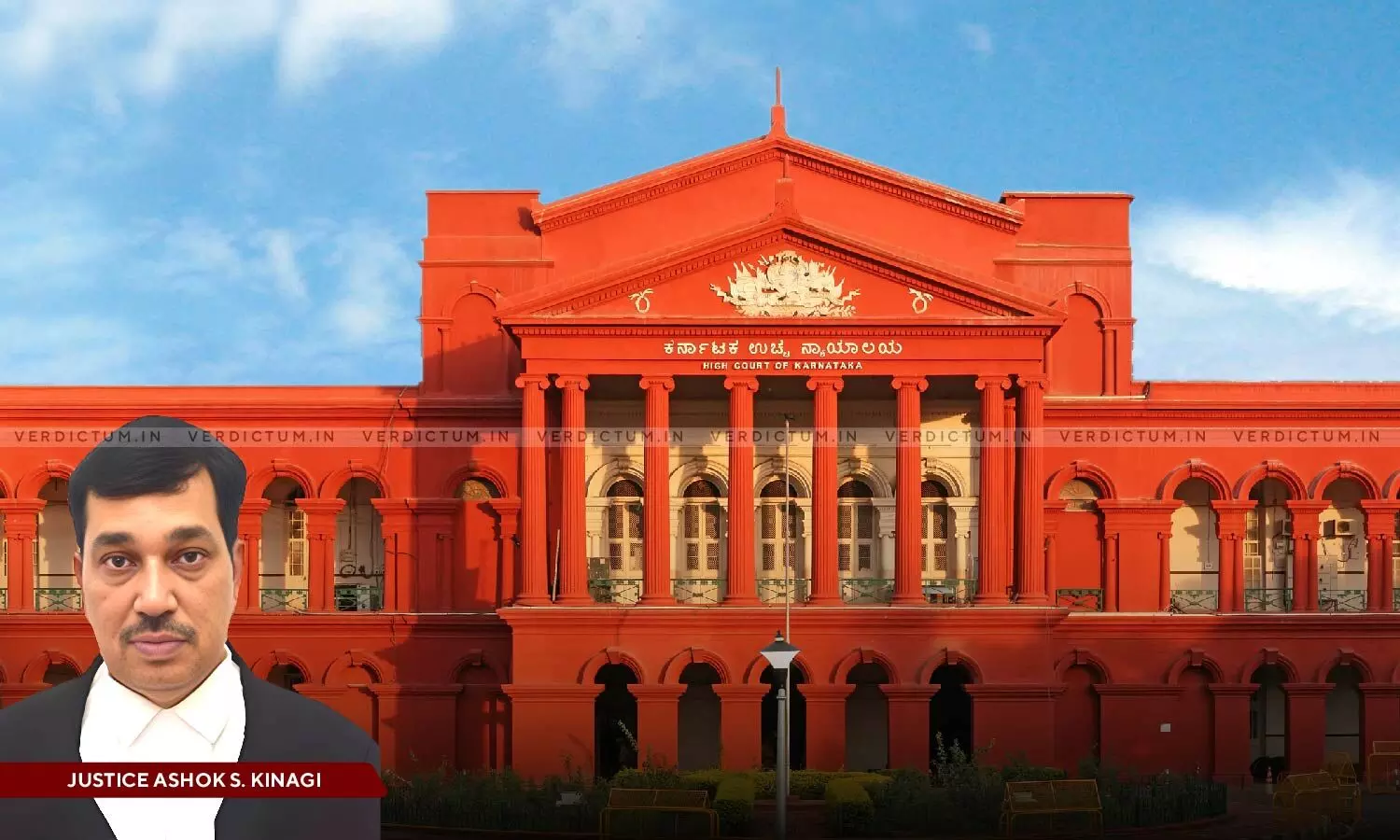
Attornment By Lessee Is Not Necessary For Transfer Of Property Leased Out U/s. 109 Of TP Act: Karnataka HC
 |
|The Karnataka High Court has held that an attornment by the lessee is not necessary for the transfer of property leased out under Section 109 of the Transfer of Property Act, 1882.
A Single Bench of Justice Ashok S. Kinagi observed, “The trial Court has dismissed the suit only on the ground that the plaintiff, except producing Ex.P1, has not produced any document to establish the relationship as landlord and tenant. The trial Court has failed to consider that the defendant has admitted the ownership of plaintiff’s vendor and also defendant’s father was a tenant and failed to consider that attornment by defendant is not necessary for transfer of property leased out to the defendant’s father under Section 109 of the TP Act.”
The Bench said that the Appellate Court has, without properly re-appreciating the evidence, simply confirmed the judgment and decree passed by the trial Court and that both the courts below committed an error in passing the judgments and decrees.
Advocate P.C. Sunitha appeared on behalf of the appellant while Advocate P. Mahesha appeared on behalf of the respondent.
Brief Facts -
A second appeal was preferred challenging the judgments and decrees passed by the Additional Civil Judge and Senior Civil Judge and it was the case of the appellant that the respondent’s father entered into a lease agreement with the appellant on a condition that the lease was a monthly lease and the rent of suit schedule property would be Rs. 500/- per month. Further, if the lease period was extended beyond one year, there would be an enhancement of rent at 10% on the prevailing rent every two years.
The present rent was Rs. 800/- per month and the respondent’s father died in the month of June 1995, and after his demise, the respondent being his son continued to be in possession of the suit property and ran a hotel in the suit schedule property. The appellant requested the respondent to pay the rent, but he did not pay the same and was therefore, received a notice terminating the tenancy.
The High Court in view of the facts and circumstances of the case noted, “In terms of Section 109 of the TP Act, it is clear that attornment by the defendant’s father or by defendant is not necessary for the transfer of property leased out to defendant’s father. … when the landlord/original owner – Sriram Shetty under whom the defendant’s father was a tenant, transferred the property in favour of the plaintiff, the plaintiff became the owner on the strength of the registered sale deed. As such, the defendant became the tenant of the schedule property and no attornment is required to create such landlord and tenant relationship.”
The Court further noted that the respondent cannot deny the title of the appellant with regard to the suit property.
“Section 116 of the Indian Evidence Act provides that when a tenant of immovable property admits he is in possession of property as a tenant and during the continuance of the tenancy he denies the relationship of the landlord. Such tenant has no right to remain in possession of the suit property”, said the Court.
The Court concluded that the judgments and decrees passed by the courts below are arbitrary and erroneous. It also directed the respondent to vacate and handover possession of the suit property and to pay the arrears of the rent amount within 3 months.
Accordingly, the Court allowed the appeal and set aside the judgments and decrees.
Cause Title- G. Jagadish Kumar v. K.G. Murali